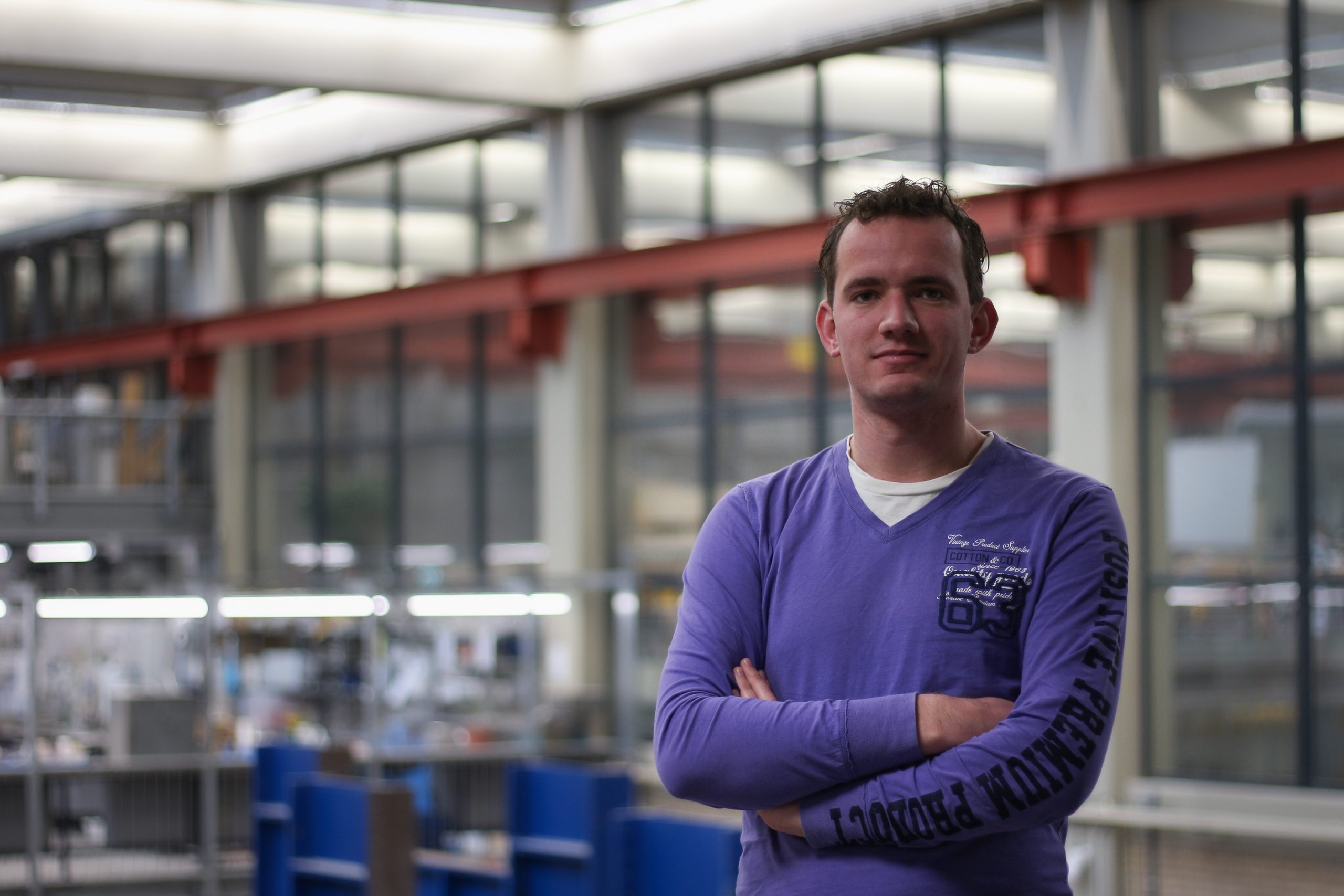Fossil fuel companies such as Shell and ExxonMobil get a stage at De Delftse Bedrijvendagen. Unfair, student Tom Twigt thinks. “Their business case is climate destruction.”
Offshore engineering student Tom Twigt. (Photo: Justyna Botor)
De Delftse Bedrijvendagen (DDB) will hold a recruitment event – the orientation days – in February. At the event, companies present themselves to TU Delft students as potential employers. Among the companies, many are involved in the fossil fuel industry, such as Shell, BP and the engineering firm McDermott.
Tom Twigt, an Offshore Engineering student, believes that it is wrong to give them a stage and in breach of TU Delft’s climate policy. The third year master’s student is involved in the End Fossil TU Delft pressure group. With friends and members of Dwars, the GroenLinks youth association, Twigt had a meeting with the Board of DDB. He explains why.
Why is rejecting fossil fuel companies important?
“The entire business case of fossil fuel companies is climate destruction. Shell says that they are working on wind turbines and that they have hydrogen, but over 90% of their investments are in the fossil fuel industry.
TU Delft too believes that we need to take action on climate change. It even has a climate policy. It is not right that students and staff members are part of TU Delft and then do nothing about climate change. This applies to De Delftse Bedrijvendagen as well.”
What do the people around you think of your position?
“I know students that want to work for fossil fuel companies. My VVD housemate says that excluding certain companies goes against his liberal principles. I do get positive responses at my student association though. Only, there are not that many people that want to put personal effort into this.”
Do you believe that excluding fossil fuel companies from the DDB will make a difference?
“I expect so. Shell for example is already saying that it is hard to recruit technical talent. If they are then excluded from recruiting events, they will hopefully think about it and really start doing sustainable things for which to recruit new talent, so that they do not just continue to greenwash.”
How did the Board of DDB respond to your call?
“We all had an open discussion. DDB did take distance though. It did not take a position and did not want to issue a statement or influence students in their career options. But I think that if you let Shell come, you are actually choosing a side.”
Will anything change now?
“No companies will be excluded from DDB this time, though I believe that they could be. There were a lot more company applications than places. You can easily send an email saying that they are no longer welcome and that other companies are welcome.
The Board wants to meet again in six months time to draft a sort of policy with us. That’s a long time from now.”
Response DDB
“We want the DDB to be a good reflection of the labour market”, says DDB in a response. “We are there for all students. Ten percent of Applied Physics graduates find jobs in the oil and gas industry, for example. So you would want to see these companies there too.”
Within each industrial sector, DDB does select on the basis of sustainability and has not invited some companies. The Board does not want to say which companies these are.
DDB confirms that the contracts for the next event are already complete and no more modifications will be made. “We will hold a survey among participants after the event. We will add ‘Are there companies that you would rather not have seen at the Bedrijvendagen?’ as a new question.”
The outcomes of the survey will be the basis of a new meeting with Twigt. After that, DDB will decide the policy of the next event. Vice-Rector Rob Mudde too promises to enter into discussions with DDB. That discussion is yet to come, DDB says.
Do you have a question or comment about this article?
K.S.vanderWal@tudelft.nl


Comments are closed.